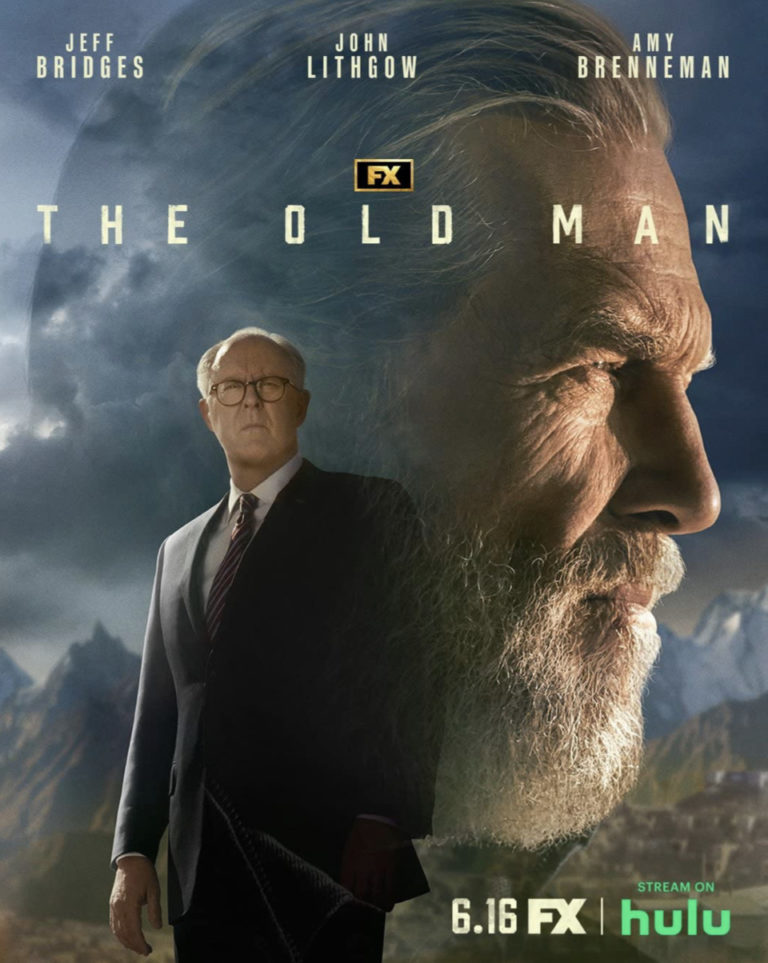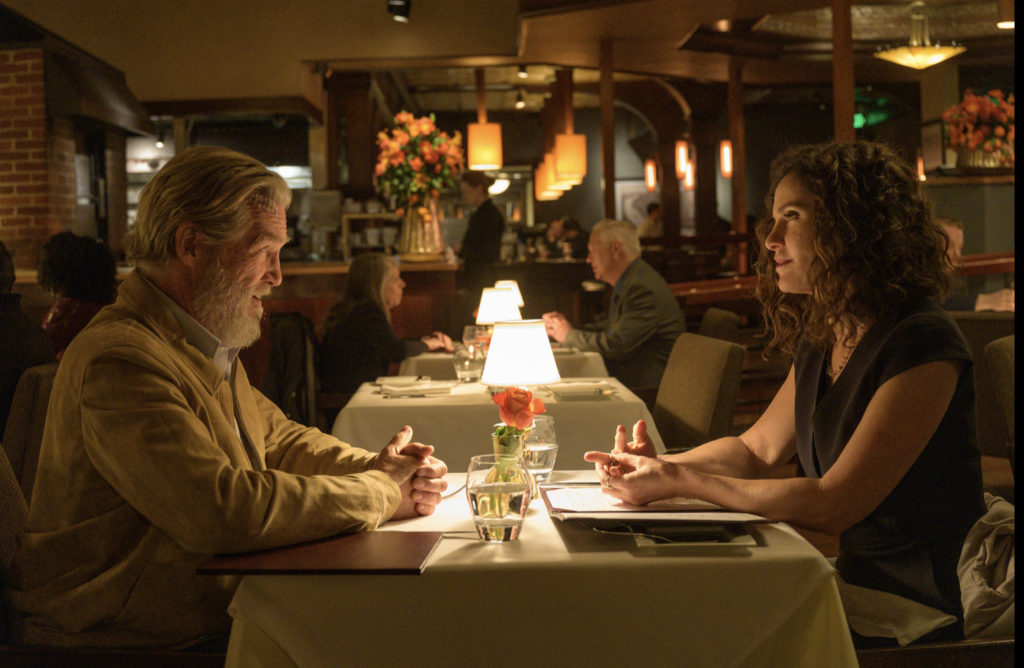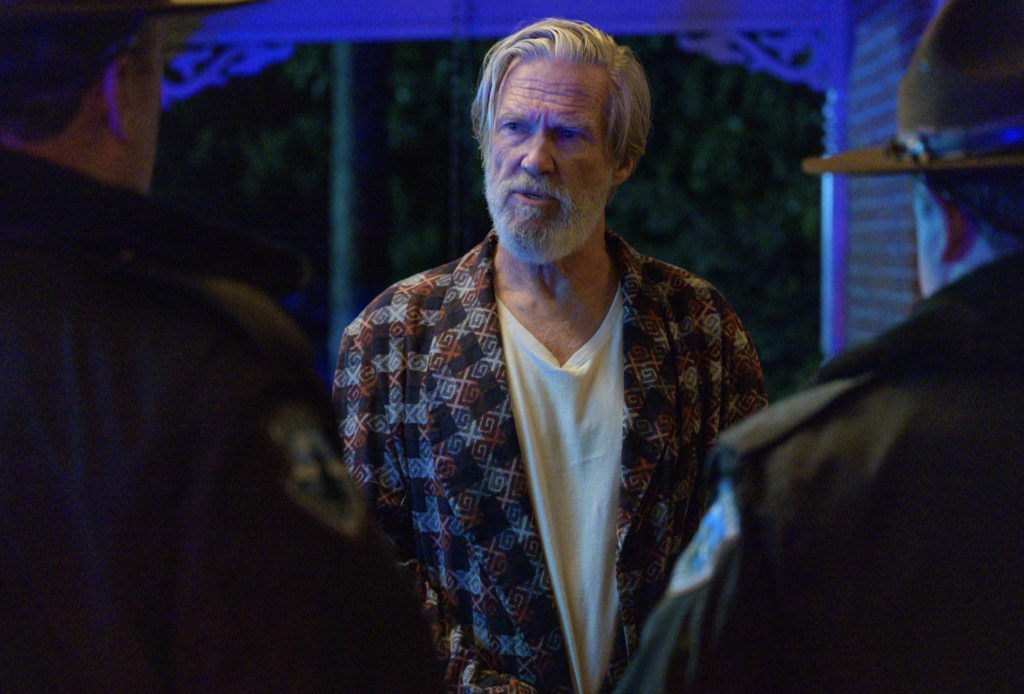
Oscar-winning actor Jeff Bridges can now be seen in his first major television role, playing a former CIA agent living off the grid and on the run from assassins in the new FX adaptation of Thomas Perry’s novel, The Old Man.
Written and produced by Jonathan E. Steinberg, the show co-stars Amy Brenneman, John Lithgow, Gbenga Akinnagbe, E.J. Bonilla and Alia Shawkat.
Steinberg and the cast recently participated in a virtual press conference to discuss the project. Here is what they said. (Questions edited for clarity.)

Q: How are you feeling after your health scares over the past couple of years? (Bridges battled both lymphoma and COVID-19.)
JB: I feel terrific. Oh, man. I mean, I went through about a year and a half of this bizarre dream and then came back, and what added to the dream effect was that there were all the people who I had just left a year and a half ago, and I said: “What happened? This is bizarre.” But I’m feeling terrific, and it’s great to be back with the gang.
Q: Did going through your own health issues change your perspective and approach to this character at all since he has Alzheimer’s?
JB: Oh man. Yeah, that year and a half bout with my mortality, you know, yeah. You know, in times like that, it seemed that all your philosophies and spirituality and everything that kind of comes to you, it tests you. So, you know, all of that has been made more mature by that experience. I haven’t felt any different, really. I have always approached life the same way, but this kind of made things sharper, in a sharper image to me. But, you know, God, it was wonderful working with these guys prior to the sickness and after the sickness, but it’s the same thing, just more, stronger. I don’t know if that’s a good analogy.
AB: As he is doing right now, Jeff will take everything for conversation, spiritual food and connection. So, yeah, it was like, “So what was it like to almost die?” “It was weird. And it was spiritual and interesting.” And I’m like, “That’s so cool.” Nothing was off-limits. Now we get to talk about this, that’s cool. Always available. Always available.
Q: Did you expect to be doing fight scenes and stunts at this point in your career, Jeff?
JB: I have always been doomed to fights. I remember asking Tim Connolly, one of our stunt choreographers about what was the kind of ultimate fight scene. He said, I want to be humble, but I got to say I worked on what I consider the great fight scene in “Atomic Blonde.” He said, “I don’t know if you’ve seen that scene.” I said, “We are in good hands.” And man, were we ever. Henry Kingi was another stunt coordinator. And then I got to work with Tommy DuPont, my stand-in stunt guy I worked with for quite a while now. So I really enjoyed all of it. It was really terrific.
Q: How did you get along with the dogs?
JB: Well, I love the dogs. The dogs were incredible; there were about five of them. And they were all so sweet. And our trainer, Sarah Clifford was so wonderful.

Q: Do you see any similarities between this character and The Dude in The Big Lebowski?
JB: Well, they are almost diametrically opposed. I think one of the things that people dig about The Dude is his authenticity, you know, he is who he is, and it’s a take-it-or-leave-it kind of thing. When you’re in the CIA and you’re kind of a spy and you morph yourself into different identities as needed and in a way you kind of lose your real identity, you don’t know really who you are really, you know, that can be kind of disconcerting. So, they are very different cats.
Q: Were there any things you learned from guest starring on your father’s TV show Sea Hunt as a child that was helpful with this job?
JB: If you ever watched Sea Hunt and saw an 8-year-old kid, that was probably me. I am a product of nepotism. My dad set this whole thing in motion and I remember being an 8-year-old kid, him sitting me on his bed and teaching me all the basics of acting. The big thing I learned from him was the joy in which he approached his work — or his play. I got to work with him twice as an adult in Tucker and Blown Away. And it was so great to see him come on the set and everybody was like, “Oh, this is kind of fun.” We can relax and have fun and play. When you relax like that, the good stuff, the story that you’re telling can come out, and you’re not tense, wondering if you’re not doing it in a loving place. One of the loving things working with John, we had such a great time and had — we had so much in common — we were both kind of thrown in — with the parents being actors. And that was so wonderful.
JL: Jeff and I — our two characters — we sort of run in parallel storylines. Part of the suspense of the first season is, “When are they going to finally collide and their stories come together?” They finally did when Jeff came back after his long ordeal. And a scene that you have not seen yet, all you journalists, is the culmination of the first season, and it took us six days and it was entirely played inside an automobile, and so we sat together for six days. We never stopped talking, telling stories, telling jokes, talking about our families, talking about philosophy. And the whole time we had our mics on and the whole crew was listening to that, and they were hearing the birth of a great lifetime friendship. I mean, there’s not much more left to our lifetimes. But the most amazing — and I miss this man so much as soon as we wrapped. Today’s the first day we’ve been back together after about a month. It’s been a long month, Jeff. He’s a fantastic man to work with. Everybody in this family will tell you the same thing.
Q: What made now the right time to do a series of your own?
JB: I approach things, because I have a lot of resistance, man. I resist my ass off because I know what engagement costs. I got a lot of other stuff that I’d be doing, too, you know I’ve got a family, all kinds of stuff. So, this show was no different. That’s one element in my answer. The other answer is my father, Lloyd Bridges, who did six TV shows, six series, and I saw what hard work, I mean he’s a very joyous cat, but he’s also a really hard worker and I guess I have a similar kind of approach. He’s my teacher — know your lines and all that kind of stuff. So, when the offer came, I said, “Oh, that’s interesting.” My buddy Tim Stack recommended this book. Read the book and read the script. “Oh, the script is good. I don’t know if I can.” I said, well, “Meet the guys.” So, we had meetings, met this guy, the creator of the thing and Warren, we had dinner and I’m starting to get lured, find out the casting and the director, and I say, “What about my buddy T-Bone Burnett doing the music?” “Oh yeah,” they say. And all of a sudden it gets too exciting to turn down and so I’m here and I’m digging it. One of my concerns was about how different it would be than making a movie, and it is absolutely no different, it is the same thing. You have enough time to do your work. But it is an exceptionally good one with the artists that have been assembled.
AB: Also, obviously this is not the 24 episodes that your dad did or that I did. This is a movie. I feel like the age that I am, it’s like, can we say the word miniseries? You can’t say that anymore. That’s what it is. It is a different art form. It is not the grinding out. … This is so different. This is really more like a movie.

Q: What was it like bringing this story to the screen?
JES: We wanted to own what it means to not just to survive being an action hero, but to deeply survive it and to get to a point in a human being’s life where there are real things you are wrestling with and then collide his past back into it. It was a constant process of trying to really embrace it. What is it like to live that life at that stage, to feel like you’re in the final act of your story and to be dealing with all of the things that people deal with in their final act of their story and they realize there might be another act ahead. We talk a lot about three-quarter-life crises, in some way that’s a little bit of what the show is about. I think the humanity, the tactile, visceral humanity of what it’s like to wake up in the morning at that age was a necessary part of it.
Q: What stage of an actor’s life do you think he/she gets the best roles?
JL: I think I’m the oldest man here today. It only gets better. I mean, for one thing, an old actor is cast in old parts in stories about age and mortality and fearing the loss of your viability, all sorts of extraordinary things, I mean, and Jon has written beautifully on this subject, I mean, making actually not just one or two or three, but four old men who begin to become the sort of central characters in this series. The notion of mortality, it just hangs over this series in a completely unique way. I mean, I really can’t even think of anything to compare it to.
AB: But I also think it’s connected to agency, right? I feel like what attracts me as, like, a female in this is, like, it’s this whole thing that Jon and Dan have created so beautifully that, really what it is, is agency and power, right? So, you have these dudes that are used to, from 30 years ago, being in charge, being powerful, having agency, right? Well, then, you know, your body starts to break down as you get older, so there’s a little bit of agency and power and marginality. Well, my character, Zoe, never felt power. So, it’s like, “Oh, welcome to my world.” You feel delicate, you feel powerless, like, yeah, let’s talk. So, I think it is not only age, but it’s any time that you feel disempowered or marginalized or you don’t have agency in your own life, there’s this similar conversation, even though these people come from such different backgrounds.
Q: What was it like having your character Harold share his scenes with Dan via phone?
JL: You have a prop. You have a phone. You talk into it, and you’re talking on the other end of the line to the script supervisor, a wonderful woman.
JES: Yeah. Do you like talking to the actual actor on the other side of the phone, or do you prefer talking to the script supervisor?
JL: It is, you know, whatever is required. In my case, I didn’t get to act with Jeff for a long, long time because the entire story is circumstances have kept these two men apart. They were very, very close and very involved in very high stakes and dangerous political and military activity years ago, and they have had to stay apart for various reasons ever since. And the tension of the entire first season is when are these two men finally going to be forced together. And my only connection with him is by telephone and only once. That was the extent of my acting with Jeff Bridges for two years after I started working on this project. And even in that scene, all I got to do was talk to Allison, our script supervisor. So, as I said before, it was a fantastic moment when I finally got to work with him.
https://www.youtube.com/watch?v=LL2lhM_kDPM&t

